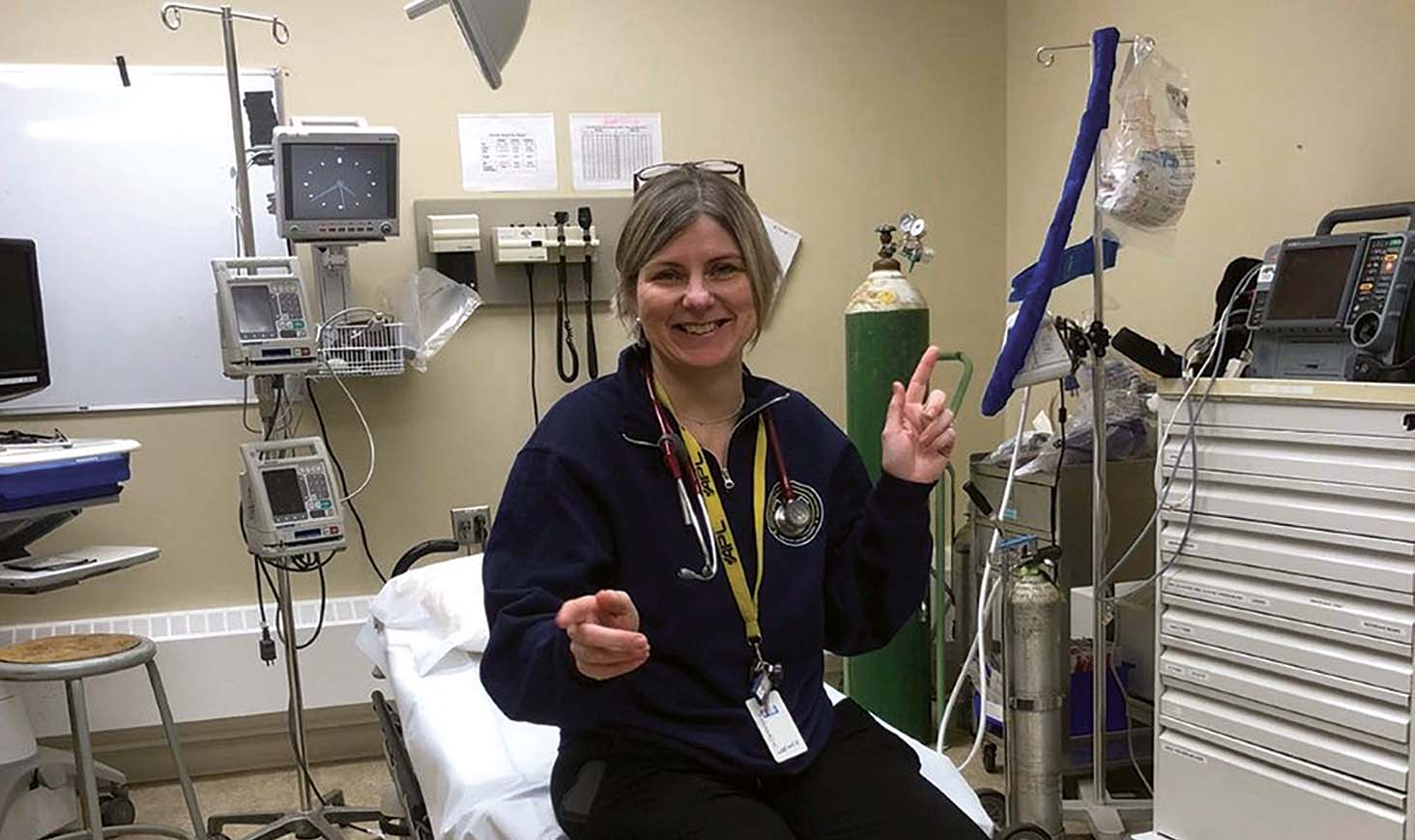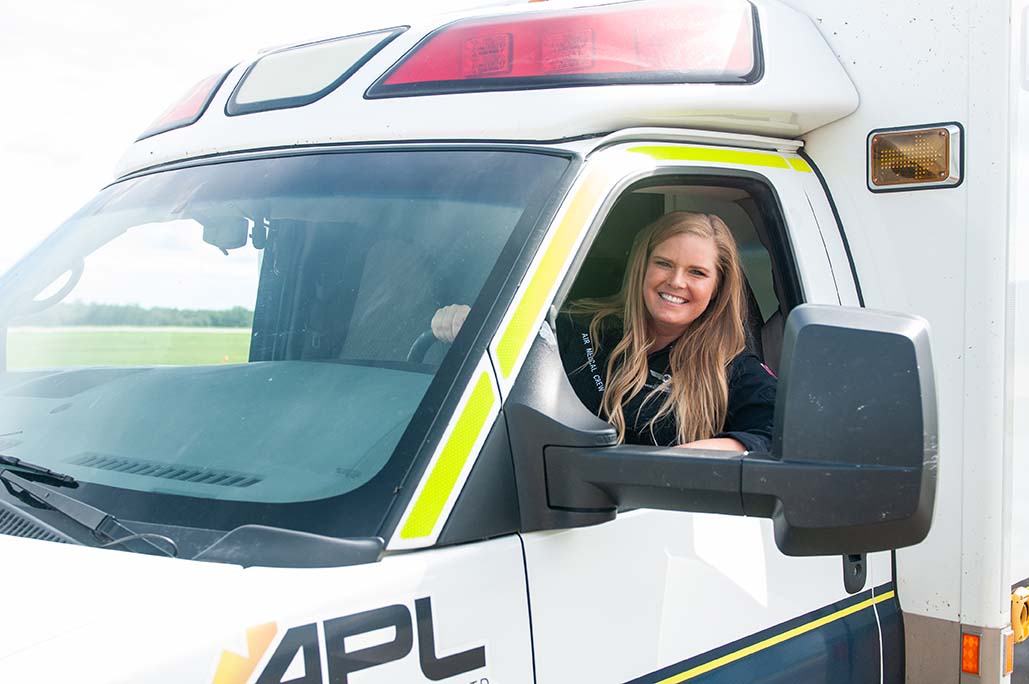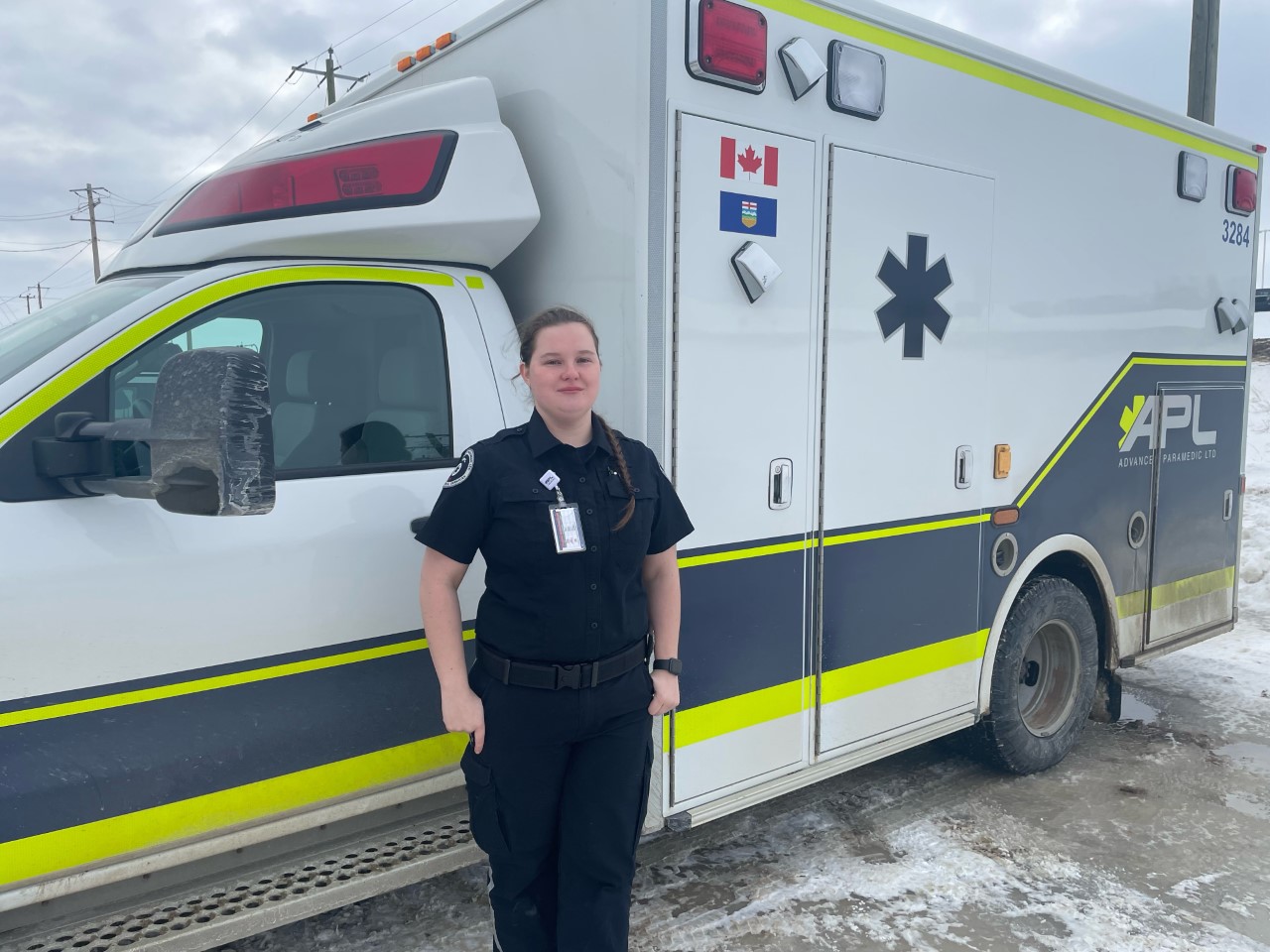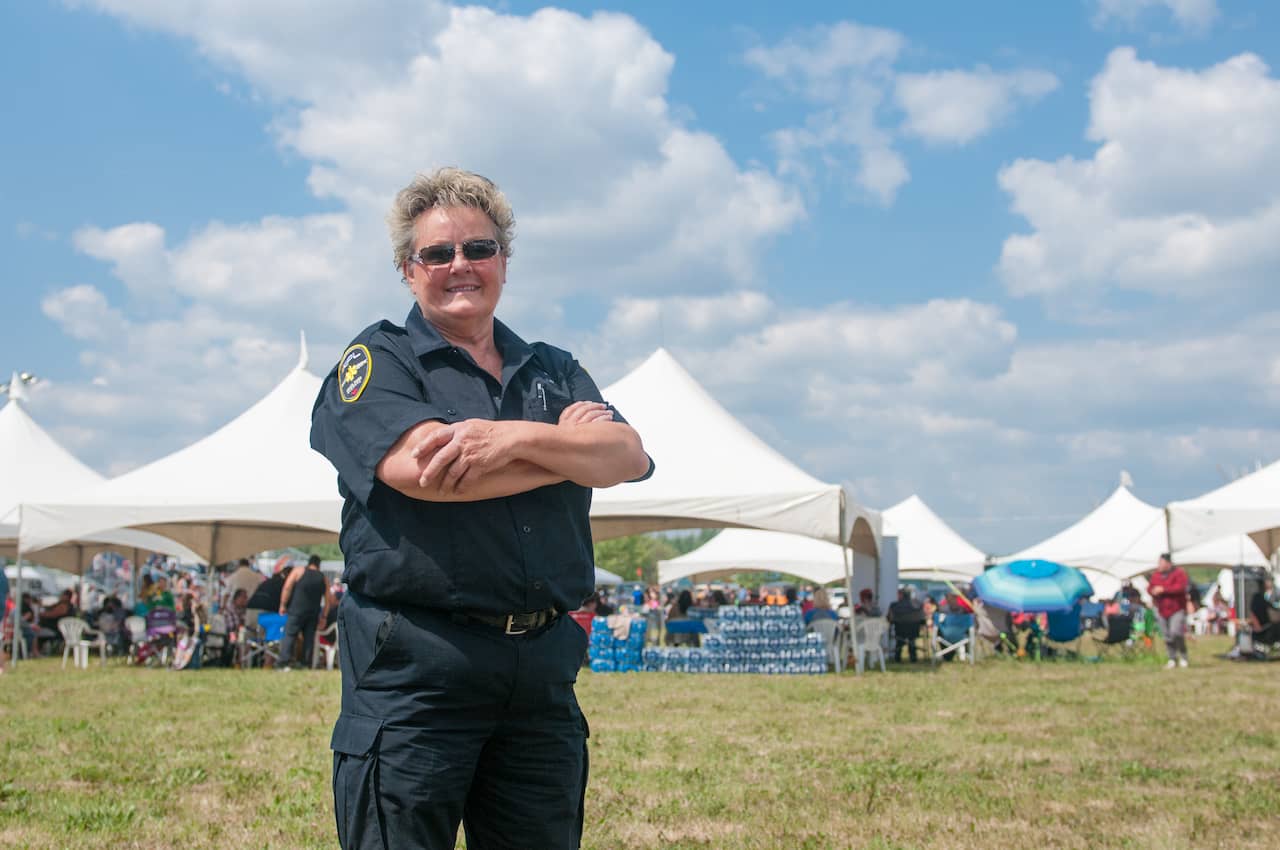In paramedicine, it is no secret that every day is different. But for these four women, employed by Advanced Paramedic Ltd, this especially rings true. In this article, we will share their experiences, advice, and highlight the diverse roles of paramedicine.

CAROLYN MAY
ACP and Team Lead for Advanced Paramedic Ltd.’s (APL) Indigenous Services Clinic (ISC) Division.
What is your favourite part of your role?
The continuity of care – you are involved in primary care, preventative medicine, and day-to-
day concerns, so you make those important connections with patients. Working in remote locations, you will see things you’d see in a hospital, clinic, ambulance and on the ground, all wrapped into one. It’s an experience like no other.
In your role, what does a “normal” day look like?
I check and answer emails and take care of anything that came through in the night. Then I go to clinic and lead the group morning meeting. At 9 am, we open the clinic and see patients on a primary care aspect, and if an emergency happens, everything gets dropped and I attend the emergency. I take care of my Team Lead responsibilities between patients whenever possible.
How did you become interested in paramedicine and progress to your role?
Paramedicine has been in my life for as long as I can remember. My grandfather was a medic in World War II, my older brother is also an ACP, and for a while, my younger brother was responsible for the 911 PSP. I progress in my role by persevering, having confidence and making connections.
What would you say contributed to your success?
Having internal drive and enthusiasm is built into my genes, and my family is very supportive and encouraging. So anytime I went for something I wanted, I always had their full support – I am very fortunate in that.
What has been the greatest challenge that you had to overcome in your career?
For me, the biggest challenge was the lack of encouragement, support, and investment from the company I was working for in Nova Scotia. But when I came to Alberta and APL took over, it was like night and day. APL wants growth, innovation, and support, and they do everything they can to make us flourish – they treat us so well.
What advice would you give to a female within the paramedicine industry?
Protect your physical health – you need to be fit and able to lift. If that means working out or doing weights, then that is what you must do. Protect your mental health and if you are struggling, reach out to a mental health counsellor, your Employee Assistance Program, a family member or a good friend. Her heart is as big as her smile. When she is not in the office, she can be found in her garden, renovating her home (yes, she can swing a hammer), tending to her growing number of house plants, or enthralled by a good book in her hammock.

COURTNEY BOLDUC
Peace River Flight Division Team Lead and Registered Nurse (RN) for Advanced Paramedic Ltd.
What is your favourite part of your role?
Working with all the amazing ACPs has taught me more than any formal educational setting, and just practicing critical care medicine in general. It’s rewarding when I can make someone else feel better – whether that is caring for my patients, debriefing with my partner after a hard call, or guiding them in the right direction for the best outcome.
In your role, what does a “normal” day look like?
First, we get the call to go help the person wherever they may
be and transport them to the hospital. We assess them, treat them, manage them, stabilize them, and then take them to the appropriate level of care they need. Their condition determines which hospital they will go to in either Edmonton or Calgary, and once we arrive, we hand over care to the receiving facility.
How did you become interested in paramedicine and progress to your role?
While working in the emergency department in my RN role, I admired all my friends who were paramedics. By seeing them at work and live in action, I knew I wanted to do that job. The self- assurance, knowledge, professionalism, and passion that they all carried fuelled me to work my butt off. After a lot of hard work, I was offered a position in the Flight Division with APL.
What would you say contributed to your success?
The people around me – if it weren’t for them, I would not be where I am now. The team has always supported, persuaded and even pushed me to go further. Gaining more knowledge and experience, and testing and nurturing my leadership potential has been huge, especially from being at a first responder level to now supervising the same people. We have such a nurturing relationship, and they all helped me succeed throughout the process.
What has been the greatest challenge that you had to overcome in your career?
For me, it would be that it takes time to absorb, process, and apply any knowledge into the practice. I’ve always wanted to know everything right now but allowing the appropriate learning process to happen was probably my biggest challenge.
What advice would you give to a female within the paramedicine industry?
Take care of your health. This is one of the things that I had
to focus on because I wanted to work so hard and prove myself because I am a woman. But you don’t have to. Just take care of yourself physically, mentally, emotionally, and as long as you keep those aspects of your health strong, you can do it.

KAMRYN GLASER
Primary Care Paramedic (PCP) in the Ground Division in Cadotte Lake, Alberta for Advanced Paramedic Ltd.
What is your favourite part of your role?
It is over an hour to the closest resource, so we tend to intervene more than if
it was a simple 10-minute drive to the hospital. I love that you get to use all your skillsets with it, and you are always learning something.
In your role, what does a “normal” day look like?
When I am on my week on rotation, I live at the Cadotte Lake Ambulance Station. We are the only ambulance in the area and we typically run two to three calls per day. When we are not running calls, we do base duties like cleaning, stocking the ambulance, making sure the base is fully functional, or resting.
How did you become interested in paramedicine and progress to your role?
When I was 18, there was a personal interaction with paramedics when our family had a medical emergency, and a very important member of my family nearly passed away. We called the paramedics and they were so caring, compassionate and professional; I was just like, ‘this is what I want to do.’ So, I took the PCP program and worked my way to my current position at Cadotte Lake, and I recently got accepted to take my ACP in the fall.
What would you say contributed to your success?
A big part of it is passion – I love what I do, and I just want to grow and learn in it. I have a really supportive family, a strong backbone and support system. The way APL helps their practitioners grow and learn in their trade is a big part of it. They support me in pursuing my career desires and are very open to providing opportunities to grow and learn in it.
What has been the greatest challenge that you had to overcome in your career?
The biggest challenge for me was my age. I was 19 when I graduated from getting my PCP license and went to the oil patch. Being a young girl, people don’t take you as seriously. “You will never last” or “you are too young” are judgments that I faced in the beginning, but I used it as fuel to show them they were wrong.
What advice would you give to a female within the paramedicine industry?
You are good enough, you are strong enough, and you are smart enough. If paramedicine is something you are truly passionate about and interested in, don’t let anyone say that you aren’t good enough. It’s a tough job and it’s hard to learn but it is so worth it.

LINDA GADBOURY
Emergency Medical Responder (EMR) in the Industrial Division for Advanced Paramedic Ltd.
What is your favourite part of your role?
One of my favorite parts about the role is the sense of community. I usually work in remote locations for the same contractors for extended periods, which allows me to really get to know the people around me because we are there together every day.
In your role, what does a “normal” day look like?
I wake early, start my truck, eat breakfast, pack my lunch, and head to the job site. I make sure the equipment is ready to go, sit in my truck (Mobile Treatment Centre), and observe the work and people on the site.
How did you become interested in paramedicine and progress to your role?
Helping people has always been a big part of me. My first job was in a drug store where I spent six years as a pharmacy assistant, and later in life, the paramedic field interested me, so I did my training. Being able to assist people and attend to their needs and get further medical aide if needed is always fulfilling.
What has been the greatest challenge that you had to overcome in your career?
The biggest challenge for me was my age. I was 19 when I graduated from getting my PCP license and went to the oil patch. Being a young girl, people don’t take you as seriously. “You will never last” or “you are too young” are judgments that I faced in the beginning, but I used it as fuel to show them they were wrong.
What advice would you give to a female within the paramedicine industry?
You are good enough, you are strong enough, and you are smart enough. If paramedicine is something you are truly passionate about and interested in, don’t let anyone say that you aren’t good enough. It’s a tough job and it’s hard to learn but it is so worth it.
What would you say contributed to your success?
Having my family’s support behind me is major, and my sister, who was an RN, has a big influence on me. Another important part of it is working for the same company for the past 16 years. We work together on jobs and scheduling, and the contractors I work with are pretty great too.
What has been the greatest challenge that you had to overcome in your career?
The greatest challenge is dealing with a medical emergency, and we are a long way from a medical facility. Also, being gone from home for long periods and sitting in my MTC unit for 10-12 hours a day is hard mentally and physically.
What advice would you give to a female within the paramedicine industry?
Go into the job knowing that you are every bit as important as the next person. Whether you are an EMR, PCP, or ACP, we all have our roles to do, so never let anyone make you feel that you are less. Stand your ground, stick up for yourself, but be respectful. There is always something more to learn, so don’t forget to be kind and supportive to individuals who are still getting to that point.
Current career opportunities can be found here: https://advancedparamedic.com/careers/latest-job-openings/
